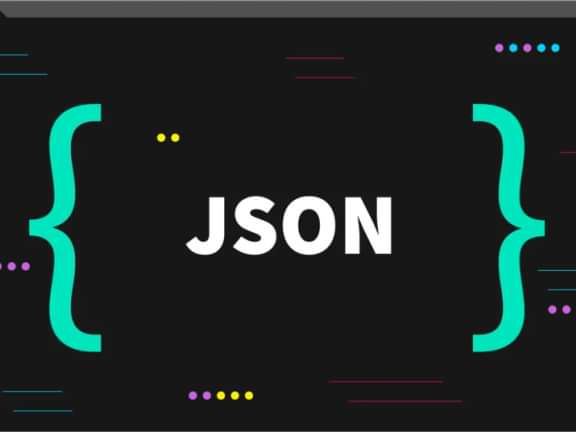Deploying a Laravel Application with Envoyer and Laravel Forge
Streamline Laravel Deployments with Envoyer and Laravel Forge Magic!
Benefits of Deploying Laravel with Envoyer and Laravel Forge
Zero-Downtime Deployments: One of the primary advantages of using Envoyer is its promise of zero-downtime deployments. In traditional deployment methods, there might be a short window where your application is inaccessible due to the update process. Envoyer eliminates this by maintaining multiple releases and only switching the active one once the new release is ready. This ensures that your users always have access to a working version of your application, enhancing user experience and trust.
Seamless Server Management with Forge: Laravel Forge abstracts away the complexities of server management. Whether you're provisioning a new server, installing necessary software, or creating databases, Forge provides a user-friendly interface for all these tasks. You no longer need to juggle between various server configuration files or remember specific commands. Forge handles these responsibilities, allowing developers to focus on writing code rather than managing servers.
Automated Workflow: Integrating Forge with Envoyer means that once you push your code changes to your Git repository, Envoyer can automatically detect these changes and start the deployment process. This seamless integration leads to faster and more reliable deployments, ensuring that your application's latest features and fixes reach your users promptly.
Enhanced Security: Both Laravel Forge and Envoyer prioritize security. Forge sets up firewalls and provides free SSL certificates for your sites, ensuring encrypted data transmission. On the other hand, Envoyer's atomic deployments ensure that there's always a backup release available. In case anything goes wrong, you can quickly roll back to a stable state, minimizing the potential risks of exposing buggy or insecure code to users.
Collaboration and Monitoring: Envoyer and Forge are not just tools but platforms. They offer collaboration features, allowing teams to work together efficiently. Developers can receive notifications about deployment statuses, monitor deployment history, and even discuss deployment specifics. These collaborative features, combined with the monitoring capabilities, ensure that teams always have a pulse on the deployment health and status of their applications.
In essence, the combination of Laravel Forge and Envoyer provides a comprehensive solution that addresses both server management and deployment challenges. It's not just about making tasks easier; it's about making deployments faster, more reliable, and more efficient, all while ensuring optimum user experience and application performance.
Zero Downtime Deployment Configuration
So now that we understand the why, let's get to the how! Here's a guide to help you deploy a Laravel applications using these tools:
1. Prerequisites:
- A Laravel application ready for deployment.
- An account on Forge and Envoyer.
- A Git repository (like GitHub, GitLab, or Bitbucket) where your Laravel code is stored.
2. Setting up Laravel Forge:
a. Link your server:
- After logging in to Laravel Forge, create a new server or link an existing one.
- Choose your desired server provider (e.g., DigitalOcean, Linode, etc.) and fill in the necessary details to provision a new server or link an existing one.
b. Configure server environment:
- Once the server is ready, go to the server dashboard.
- Install any necessary software and make configurations specific to your application.
c. Add a new site:
- In the server dashboard, navigate to “Sites” and click on “Add Site”.
- Fill in the required details for your Laravel application and create the site.
d. Deploy the site:
- In the site's dashboard, under "Quick Deploy," connect your Git repository and deploy the site for the first time. This makes sure everything is in place.
3. Setting up Envoyer:
a. Link your project:
- Log in to Envoyer and click on “New Project”.
- Choose Laravel as your framework and link your Git repository.
b. Add your server:
- Under the “Servers” tab, click on “Add Server”.
- Add your server details (you can get these details from Laravel Forge).
c. Configure deployment hooks:
- Envoyer allows you to run scripts before, during, and after deployment. Set up these deployment hooks as per your application needs.
4. Zero-downtime Deployment:
Now that both Forge and Envoyer are set up:
a. Push changes to your Git repository.
b. In Envoyer, click on “Deploy”. Envoyer will fetch the latest changes from your Git repository, deploy them to your server without affecting any active users, and then switch the link to the new release.
c. If anything goes wrong, Envoyer provides an easy “Rollback” feature to revert to the previous stable release.
5. Continuous Deployment (Optional):
If you'd like to automate deployments:
a. In your repository, set up a webhook pointing to Envoyer's provided webhook URL. This will automatically notify Envoyer to start a deployment whenever you push changes to the repository.
b. Configure Envoyer to automatically deploy when it detects a change.
Conclusion:
Both Laravel Forge and Envoyer provide streamlined workflows for deploying Laravel applications. While Forge sets up and maintains the server environment, Envoyer ensures that deployments are smooth and without downtime. Together, they offer a robust solution for Laravel developers to deliver their applications efficiently.
Feel free to expand on these points, add screenshots, or provide specific examples as needed to cater to your blog's audience.
Continue reading.
The Element API plugin is a very powerful tool that you can use for quickly exposing your data structures to an external source.
Read moreA brief introduction to consensus mechanisms and why proof of stake is the right move for Ethereum.
Read moreLet's chat about your project
Portland, OR 97215



